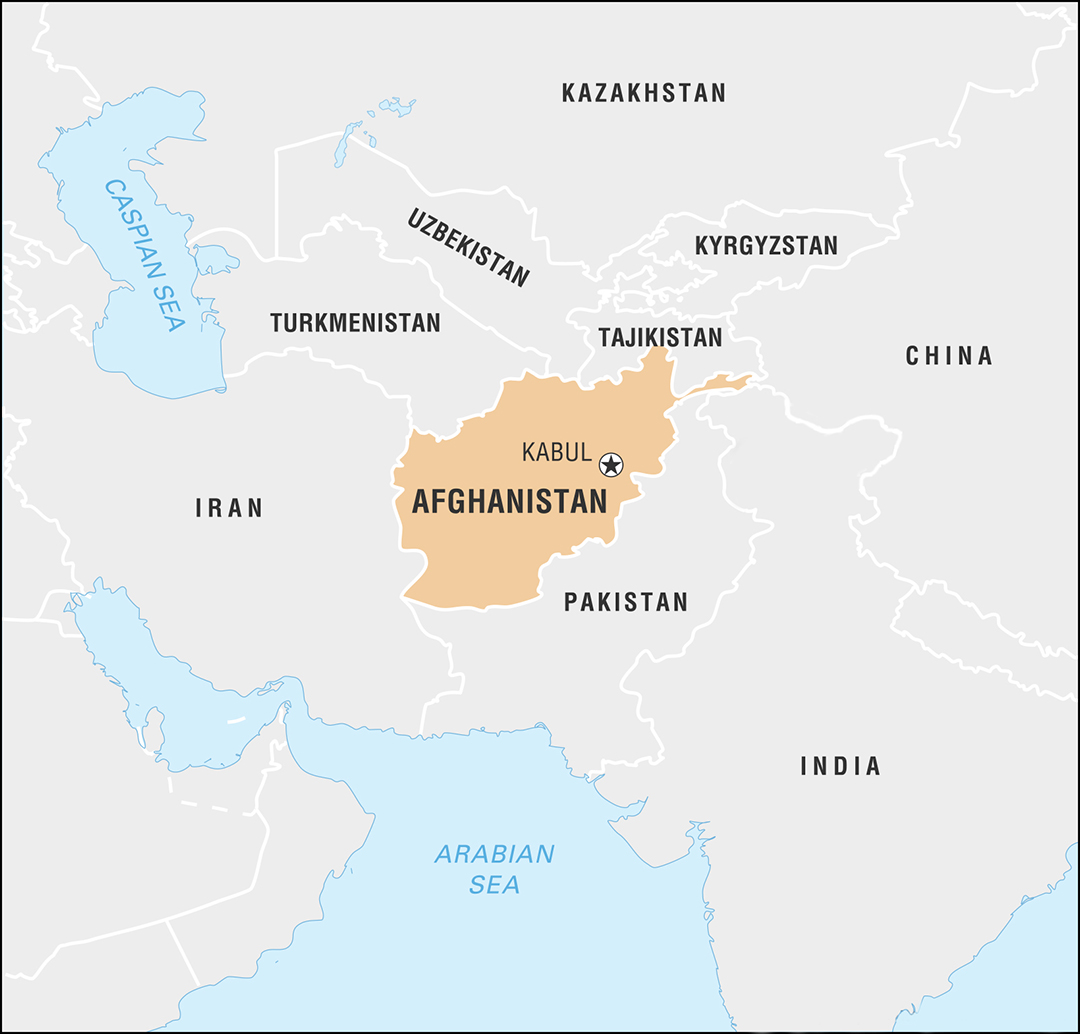International Relations
Security Threats Emanating from Afghanistan
- 26 Aug 2021
- 5 min read
Why in News
Recently, India engaged with the heads of the government of Russia and Germany, after the restoration of Taliban rule in Afghanistan. Stability in Afghanistan is linked to the peace and security of the region and India is no exception.
- Russia showed interest in working with India bilaterally, multilaterally at the UNSC, and at other fora like SCO and BRICS, despite the differences between India and China on the Afghanistan issue, and on the role of Pakistan in facilitating the Taliban.
Key Points
- Coming Back of Taliban Rule in Afghanistan:
- In 2020, the US signed a deal (at Qatar's capital-Doha) with the Taliban that envisaged a full withdrawal of foreign soldiers from Afghanistan.
- However, the major flaw in that agreement was that it excluded the Afghan government.
- Further, Taliban do not see the democratic government as legitimate ruler and they don’t believe in the Constitution, rule of law, or democracy.
- Hence, immediately after the US troops withdrawal, Taliban seized major cities including capital Kabul in Afghanistan.
- This has raised various concerns regarding cross-border terrorism, humanitarian crisis, and new geopolitical order.
- Threats for India Emanating from Afghanistan:
- Cross-Border Terrorism: India is worried over the issue of cross-border terrorism, which can now rise after coming back of Taliban rule.
- Groups such as the Lashkar-e-Taiba and Jaish-e-Mohammed which have close affinity with Taliban and enjoy Pakistan’s support, threaten regional peace and security.
- Religious Fundamentalism: Like all radical groups, the Taliban will have trouble balancing its religious ideology with the imperatives of state interests.
- Here, India faces a challenge to deradicalise the region for long lasting peace and stability.
- New Regional Geopolitical Developments: There can be formation of new regional geopolitical axis between China-Pakistan-Taliban, which may go against the interests of India.
- Economic Losses: Coming back of Taliban will jeopardise India’s investment in Afghanistan. It will also hamper connectivity projects to Central Asia via Afghanistan.
- Cross-Border Terrorism: India is worried over the issue of cross-border terrorism, which can now rise after coming back of Taliban rule.
- India’s Diplomatic Engagement Regarding Afghanistan:
- Recently, India’s National Security Advisor chaired a meeting of the NSAs of the BRICS countries (Brazil-Russia-India-China-South Africa).
- The meeting also adopted and recommended the BRICS Counter Terrorism Action Plan for consideration by the BRICS Summit.
- The Action Plan aims to further strengthen existing mechanisms of cooperation in areas such as:
- Financing and combating terrorism,
- Misuse of the Internet by terrorists,
- Curbing travel of terrorists,
- Border controls,
- Capacity building,
- Regional and international cooperation.
- At the 31st special session of the UN Human Rights Council, India raised various concerns over the serious human rights concerns and situation in Afghanistan.
- Recently, India’s National Security Advisor chaired a meeting of the NSAs of the BRICS countries (Brazil-Russia-India-China-South Africa).
Way Forward
- Engaging with the Taliban: Talking to Taliban would allow India to seek security guarantees from the insurgents in return for continued development assistance.
- India can also persuade the Taliban to explore the possibility of its autonomy from Pakistan.
- Fighting Global Terrorism: There is a need for the global community to fight against the global concern of terrorism.
- In this context, it high time to adopt the Comprehensive Convention on International Terrorism (proposed by India at UN in 1996).
- Regional Cooperation: With the resurgence of Taliban, there is a convergence of interests between India and three key regional players — China, Russia and Iran — in seeing a political settlement in Afghanistan.
- Thus, there is a need for cooperation from like minded countries on this front.







